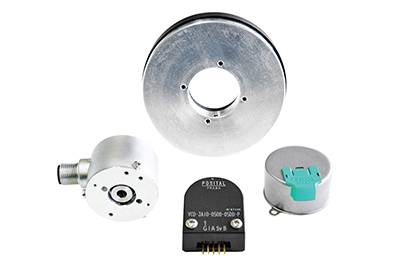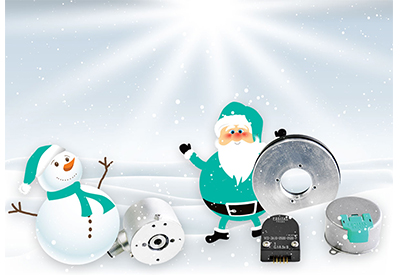A Growing Family: POSITAL Adds to its Range of Kit Encoders

December 7, 2018
POSITAL is expanding its line of kit encoder solutions for motion control applications to satisfy a wider range of needs faced by machine builders, system integrators and motor manufacturers.
Kit encoders are component-level products, designed to be built into motors or other types of equipment where real-time measurement of rotary position (angular displacement) or rotational speed is required. Compared to POSITAL’s widely used IXARC series of self-contained encoders, kit encoders typically lack sealed housings, ball bearings or separate shafts. Instead, they are intended to fit inside the host machine’s casing, with rotating components connected directly to the machine’s shaft. This results in rugged, compact installations with direct measurement of rotational position and speed.
The POSITAL kit encoder family now includes:
Multi-turn, Battery-Free Magnetic Kit Encoders: These provide absolute position feedback in a compact, rugged, low-maintenance package. Multi-turn models feature a rotation counter that is self-powered, eliminating the need for backup batteries. This makes these units highly reliable and virtually maintenance-free. Variants for stepper motors that feature the same mounting footprint as popular incremental encoders are available, providing motor builders with a convenient upgrade path to absolute position control. POSITAL’s magnetic kit encoders support non-proprietary communications interfaces, including SSI, BiSS C and BiSS Line.
 Through Hollow Kit Encoders are designed for installations where there are benefits to having the measurement element fit around a machine’s shaft or axle. With their slim design (only 18mm thick) and generous central opening (30 or 50mm), these are an excellent solution for many motor installations and compact robot joints. These devices are based on a capacitive measurement technology that combines accuracy with tolerance to shock and vibration, dust and moisture, and magnetic fields. Here again, battery-free multi-turn models are available.
Through Hollow Kit Encoders are designed for installations where there are benefits to having the measurement element fit around a machine’s shaft or axle. With their slim design (only 18mm thick) and generous central opening (30 or 50mm), these are an excellent solution for many motor installations and compact robot joints. These devices are based on a capacitive measurement technology that combines accuracy with tolerance to shock and vibration, dust and moisture, and magnetic fields. Here again, battery-free multi-turn models are available.
Compact Incremental Optical Kit Encoders are optimized for speed control of small drives, low power motors and stepper motors. These devices are simple, robust and easy to install, with a mounting footprint that is compatible with optical kit encoders from other manufacturers. They are available with a wide range of resolutions.
Magnetic Kit encoders are currently available. See www.posital.com for more information. The new members of POSITAL’s kit encoder family were formally introduced at the 2018 SPS-IPC Drives trade show, held in Nuremberg, Germany, November 27 to 29.




